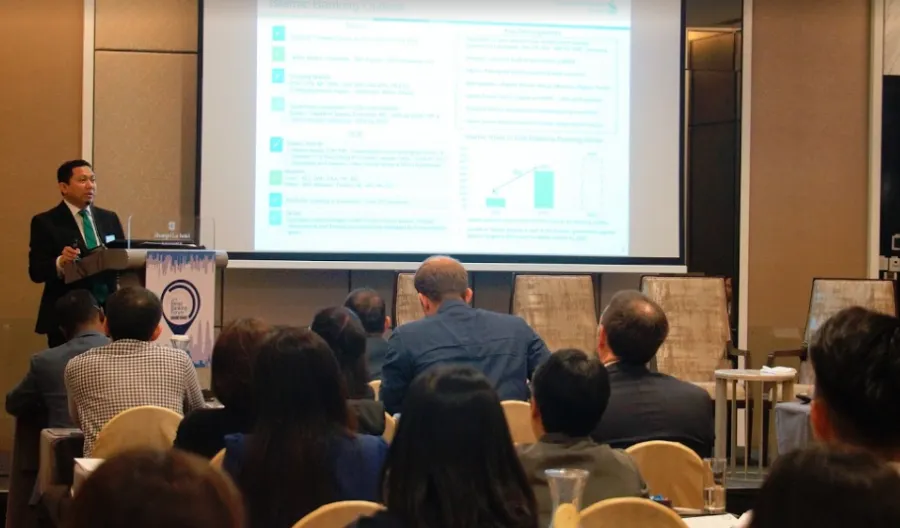
Malaysian banks flex digital muscle to catch up with Asian peers
Employee upskilling is also a priority to ensure that workers can keep up with digital developments.
Banks in Malaysia are stepping up IT investments in their bid to capture the opportunities arising serving the financing requirements of the country’s tech-savvy population.
At the Kuala Lumpur leg of the 2019 Asian Banking & Finance Retail Banking Forum, more than 60 attendees made up of top executives from the region’s biggest banks and delegates who flew in from New York, Astonia and Singapore exchanged ideas on how lenders can stay relevant against rapid developments in an industry that is rendering old ways of doing business extinct.
After launching Malaysia’s first internet banking service in 2000, Maybank has grown to assume the lion’s share in the mobile and internet banking space at 65.4% and 53.5% respectively, said Encik Ahmad Shareza Abdul Rahman, head of mass banking, CFS Malaysia, Maybank. Building on the growth of its virtual platforms, the bank now offers three digital products: MAE, its e-wallet; QRPay, its cashless mobile payment option; and Maybank 2u, its business transactions option.
To maintain its market-leading position, Rahman shared that Maybank did not just prioritise external transformation, which relied on digital upgrades, innovations, and fintech tie-ups but also directed resources in reworking its internal structures by upskilling their workforce through its FutureReady programme especially in data-driven decision making and digital risk management, and automating high-volume tasks.
Standard Chartered is also aiming to boost online banking adoption with over 82% of its userbase already on the platform by adding new offerings like online mutual funds, phone-based investments, and real-time onboarding that will expand its multi-channel approach , said Sammeer Sharma, head of wealth management, Standard Chartered Bank.
Kersten Eero, senior business development manager at cloud-based service provider Big Data Scoring, makes the case for an advanced credit scoring system that assures profitability, minimises loss and reduces the cost of manual assessment.
Looking to the future
Banks should aspire towards a platform based business model where banks and fintechs interact so that customers can enjoy a personalised banking experience under the protection of a regulated industry, according to Gopal Kiran, associate director - fintech advisory at Ernst & Young. “Following similar moves in the UK and Europe, FI industry participants in APAC are now taking concrete steps to discover what platforms mean to them, and how they can ensure their continued success – or survival – in this new normal,” he said in a report.
“An integrated effort covering from strategy, governance and to customer experience management is needed for a traditional bank to move towards a platform-based bank,” he added.
Against these ongoing digital banking journeys, Gwendolyn Lim, partner at Bain & Company and Sook-Fen Lew, manager at Bain & Company painted a clear picture of what their future digital bank branches must look like and urges players to implement key changes that will cover their people model and operations.
“The frontline service role supporting this model will evolve from friendly personal banker to customer-led digital expert,” they said, citing how a client that plans to cut manpower by 40-50% and add more specialist roles for sales and advisory which will significantly cut service roles.
Low-value activities will also take a hit as banks restructure their operations in a bid to boost efficiency. In another case study, the Bain spokespersons cited another banking client that had to offload service windows and low-value transactions, simplify in-branch processes, and implement a flexible people model.
Standard Chartered Saadiq eyes prospects in the country’s thriving Islamic banking segment, whose market share in Malaysia is projected to grow four times to 40% in 2020 by tapping into 70% of Muslims in its footprint across 30 markets, according to its CEO Mohd Suhaimi Bin Abdul Hamid, who expects large-scale mergers as well as the growth of the takaful and wealth management industry to continue driving the business forward.
The Kuala Lumpur Leg of the ABF Retail Banking Forum was held on 14 May 2019 at Shangri-La Hotel, Kuala Lumpur, Malaysia. For inquiries, please email [email protected].



















 Advertise
Advertise












